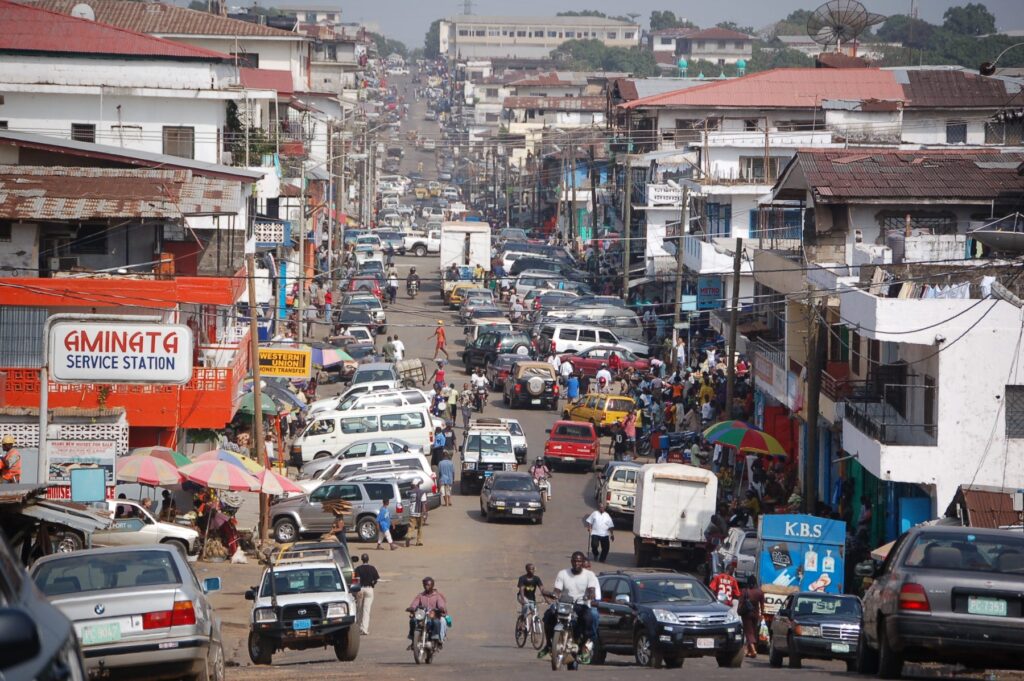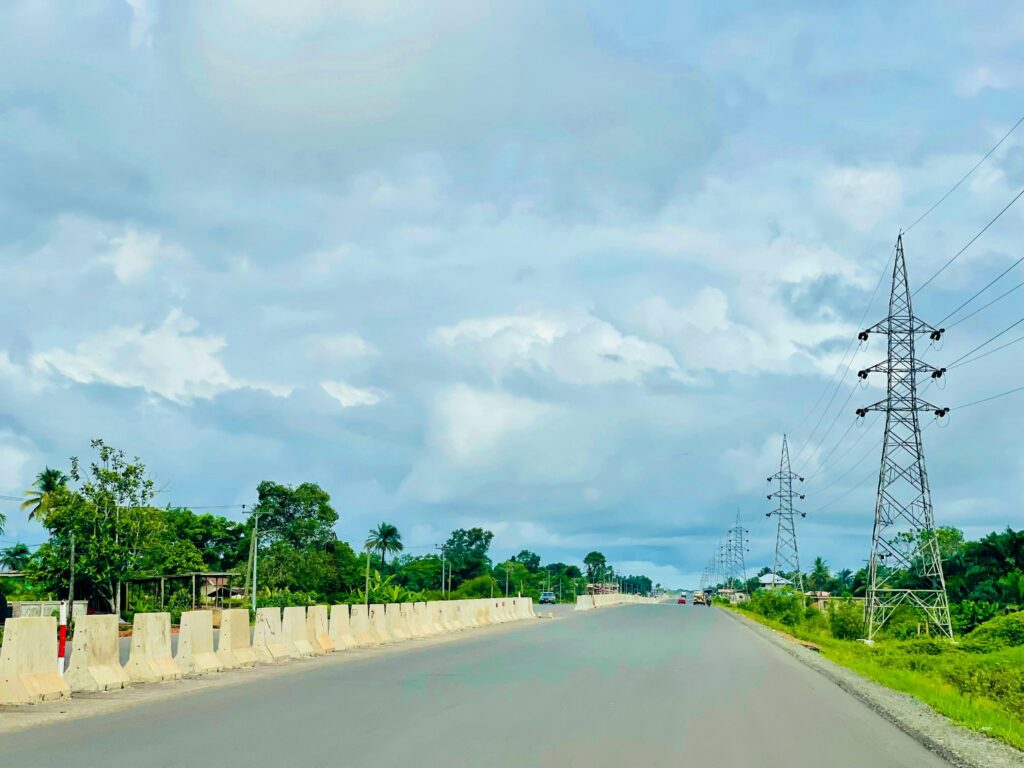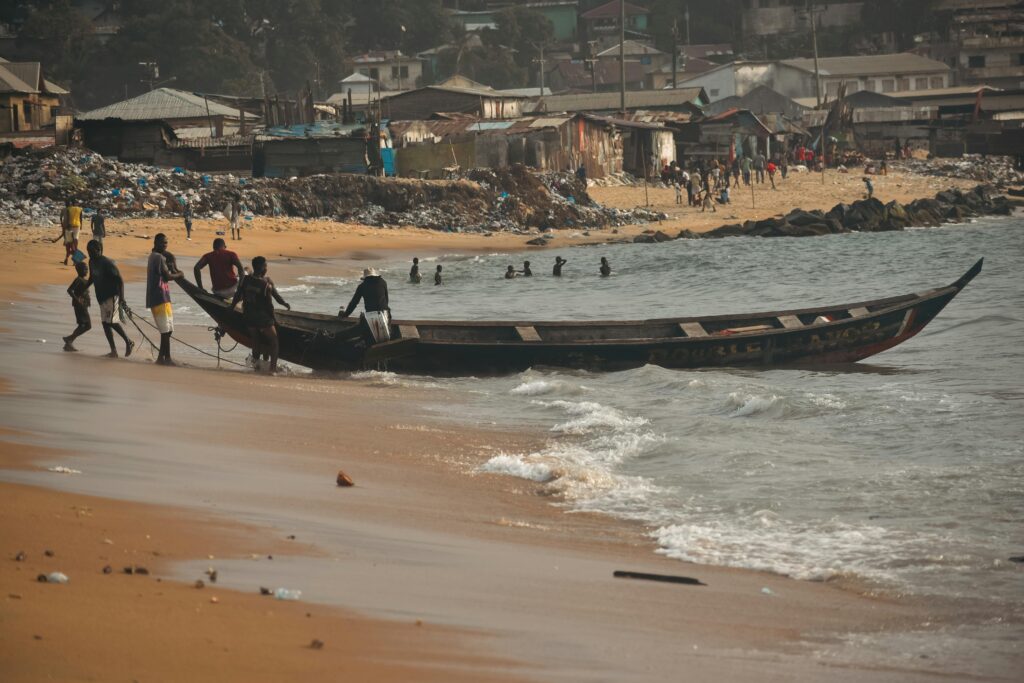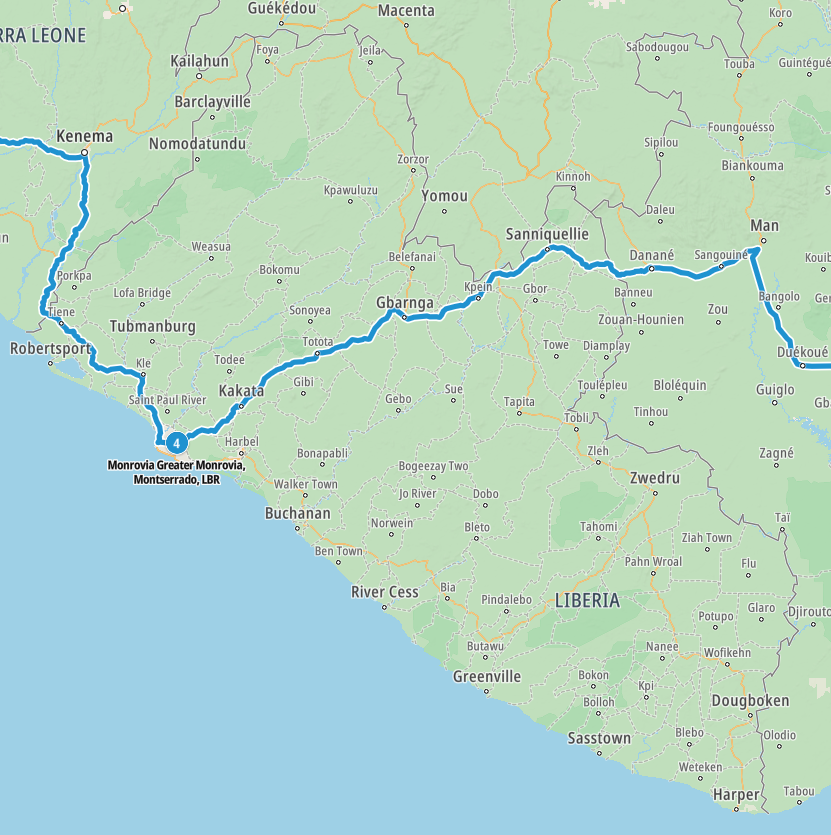Liberia / Republic of Liberia – Let’s explore here

What’s it like in Liberia?
Liberia is a fairly small country in western Africa that meets the coast of the Atlantic Ocean. It mainly consists of rainforests, mangrove swamps and lowland savannah grasslands. There are mountains in the far north of the country, the highest point being Mount Wuteve, at 4,747 ft (1,447 m) above sea level.
It’s Africa‘s first and oldest modern republic. It has a short, turbulent and interesting history, involving strong alliances with the USA, freedom from slavery, and much political instability, resulting in it being one of the least developed and poorest countries on the planet. It shares land borders with Sierra Leone, Cote d’Ivoire and Guinea.
The population of Liberia is around 5½ million people (2024), about two in five of whom live in the metropolitan area of the capital, Monrovia.

A bit about the history of Liberia
Early History and Indigenous Societies
Liberia has a rich history that predates European colonisation. The region was inhabited by various indigenous ethnic groups, including the Kpelle, Bassa and Mano, who developed their own languages, cultures and political systems. These groups engaged in farming, fishing and trade.
Colonisation and the Founding of Liberia
In the early 19th century, the American Colonization Society began a project to resettle free African Americans and formerly enslaved people in West Africa. This was partly driven by the belief that freed African Americans could not integrate into American society. In 1822, the first group of settlers arrived on the west coast, establishing a colony they named Liberia, derived from the Latin word for ‘liberty’. In 1847, Liberia declared its independence, making it the first independent republic in Africa. The settlers, who came to be known as Americo-Liberians, established a government based on the US model and dominated the country’s politics, economy and social structure.
The Americo-Liberian Era
Liberia was governed by the Americo-Liberian elite for much of its early history. The settlers created a political system that excluded the indigenous populations from the political process. Despite some initial challenges, Liberia remained stable for several decades, maintaining a strong connection with the United States. However, tensions between the Americo-Liberians and indigenous groups grew over issues of political representation, land ownership and social inequality.
The 1980 Coup and Political Instability
In 1980, the political dominance of the Americo-Liberians ended with a military coup led by Samuel Doe, an indigenous soldier. Doe overthrew President William Tolbert, marking the beginning of a new era of military rule. While the coup initially brought a sense of liberation to the indigenous population, Doe’s regime became increasingly authoritarian. Political repression, human rights abuses and corruption characterised his government. Doe’s regime faced growing opposition, leading to ethnic tensions and political unrest. In 1989, a civil war broke out when Charles Taylor, a former government official, led an insurgency against Doe’s government. The conflict quickly escalated, and various factions, including rebel groups and government forces, engaged in brutal fighting.
The First Civil War
The First Liberian Civil War was characterised by widespread atrocities, including massacres, forced recruitment of child soldiers, and the destruction of infrastructure. In 1990, Taylor’s National Patriotic Front of Liberia captured much of the country, and Samuel Doe was killed. The war lasted until 1997, when a peace agreement was reached, and elections were held. In 1997, Charles Taylor won the presidency in a controversial election, with promises of peace and stability. However, his rule was marked by corruption, human rights abuses and continued violence. Taylor’s support of rebel groups in neighbouring Sierra Leone also led to further regional instability.
The Second Civil War and Taylor’s Downfall
In 1999, Liberia descended into a second civil war, as new rebel groups, including the Liberians United for Reconciliation and Democracy, emerged to challenge Taylor’s government. The conflict again resulted in widespread atrocities and suffering for the civilian population. As the war dragged on, international pressure mounted on Taylor to step down. In 2003, with the country on the brink of collapse, Taylor resigned and went into exile in Nigeria. A transitional government was formed to lead Liberia until elections could be held.
Post-War Recovery and Ellen Johnson Sirleaf’s Presidency
In 2005, Liberia held its first post-war elections, and Ellen Johnson Sirleaf was elected as the first female president in Africa. Sirleaf’s presidency marked a new chapter for Liberia, focusing on rebuilding the country’s infrastructure, reforming the economy, and addressing human rights abuses committed during the civil wars. During her two terms (2006–2018), Sirleaf worked to stabilise the country, attract foreign investment, and improve education and healthcare. Liberia also made significant strides in debt relief, with the international community forgiving much of the country’s crippling debt. However, challenges such as corruption, unemployment, and a slow recovery from the civil wars remained.
The Ebola Crisis and George Weah’s Presidency
In 2014, Liberia was severely impacted by the Ebola outbreak, which resulted in thousands of deaths and put immense strain on the healthcare system. The international community responded with aid, but the epidemic exposed the weaknesses in Liberia’s public health infrastructure. In 2017, Liberia held peaceful elections, and George Weah, a former football star, won the presidency. Weah’s election raised hopes for a new era of leadership, but his administration has faced challenges related to economic growth, poverty reduction, and political cohesion.
Challenges and Economic Difficulties under George Weah
Since taking office in 2018, George Weah faced significant challenges in improving Liberia’s economy, which remains heavily dependent on agriculture and natural resources. High unemployment, corruption, and inflation made it difficult for his government to deliver on campaign promises of economic reform. Additionally, tensions between the executive branch and other political factions have occasionally led to unrest. Despite these challenges, Weah’s government made efforts to attract foreign investment and worked on improving infrastructure, including roads, electricity, and internet access. Liberia continues to rely heavily on international aid and support from organisations such as the World Bank and the International Monetary Fund.
Looking Ahead to 2025
In 2023, opposition leader Joseph Boakai defeated Weah, and was sworn in in 2024. As of 2025, Liberia faces several ongoing challenges, including political instability, corruption, and economic hardship. The country’s recovery from the civil wars remains a slow process, and there are concerns about governance, the rule of law, and the ability of the government to manage its resources effectively.Liberia is also grappling with the impact of climate change, particularly rising sea levels, which threaten its coastal areas, and deforestation, which affects biodiversity and agricultural productivity. However, the country remains committed to democratic governance, and the peaceful transfer of power in elections continues to be a positive sign for its political future. The success of Liberia’s future will depend on how effectively it can address its economic challenges, improve governance, and maintain social stability.

Liberia road trip
Our Liberian road trip is part of a much larger African road trip.
Map of our road trip in Liberia

Our current planned road trip through Liberia takes us from Sierra Leone towards the capital, Monrovia, before heading north east to Cote d’Ivoire.
No doubt we’ll explore the country much more than this continent-spanning short route shows, in particular checking out more of inland Liberia.
Hopefully our journey will improve our knowledge of this intriguing and beautiful country, and enable us to meet some interesting people. We’ll be updating this page at that time – don’t forget to check back 🙂
What’s it like to drive in Liberia?
They drive on the right hand side of the road in Liberia. In the main, roads are better than average, with many being surfaced, although many are dirt tracks. Driving standards are poor however.
Do you require an international driving permit in Liberia?
We’ve created a dedicated page to driving abroad, which answers this question, and more, which you might find helpful.
Can you use your UK driving license when driving through Liberia?
We’ve created a dedicated page to driving abroad, which answers this question, and more, which you might find helpful.
Do I need a carnet de passages to drive in Liberia?
We’ve created a dedicated page to driving abroad, which answers this question, and more, which you might find helpful.
What currency do they use in Liberia?
In Liberia they use the Liberian dollar. Cash is widely used. The use of credit / debit cards is not widely accepted. Travellers cheques are not generally accepted. There are very few ATMs outside of the capital.
You should make yourself aware of the amount that your bank charges you for using credit and debit cards abroad. Often credit cards are cheaper for purchasing items directly, and for withdrawing cash from ATMs.
What language do they speak in Liberia?
They mainly speak English in Liberia.
What time zone is Liberia in?
Remember, when you’re planning your next trip to take a look at what time zone it’s in.
Do I need a visa to visit Liberia?
We’ve created a dedicated, more comprehensive page on visas, which you should find helpful. Check it out!
Is wild camping legal in Liberia?
Yes, wild camping is fine in Liberia.
What plug / socket type do they use in Liberia?
In Liberia they use plug / socket types A, B and F.



Health issues in Liberia
Is it safe to drink water in Liberia?
No, it is not safe to drink tap water in Liberia. Bottled water is readily available throughout the country.
What vaccinations are required for Liberia?
This NHS website is kept up to date with all relevant information on vaccinations in Liberia.
Phones in Liberia
What is the country calling code for Liberia?
The country calling code for Liberia is +231
What are the emergency phone numbers in Liberia?
- The emergency number for police in Liberia is: 911
- In Liberia, the emergency number for ambulance is: 911
- The emergency number for fire in Liberia is: 911
If you’ve got some useful info that you’d like to share, let us know!
And don’t forget to check out all the other pictures!
